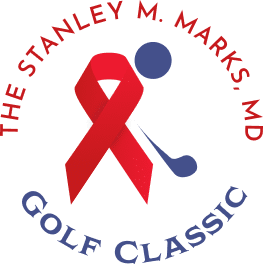Inaugural Award Ceremony
The award is named after Pitt running back James Conner, who was declared cancer-free in 2016.
2016 James Conner Courage Award Recipient
James Conner, Leukemia Survivor
James Conner was honored at the 2016 Stanley M. Marks, MD Golf Classic and it was that year that the annual Courage Award was renamed in his honor. In 2015, as a junior running back for the University of Pittsburgh, James was diagnosed with Hodgkin's Lymphoma. This young man never stopped his drive to return to the football field. After many rounds of chemotherapy, he would show up for practice with a surgical mask protecting him from infection, and power through the drills leading his teammates to coin the phrase "Conner Strong." His return to the field was inspiring and his tenacity, strength and work ethic eventually caught the eyes of the Pittsburgh Steelers where James was successfully drafted and now in the running back position.
James Conner accepts the newly named "James Connor Courage Award."
Jerry DiPaola | Saturday, June 18, 2016
Less than one month after he was declared cancer-free, Pitt running back James Conner took a break from his preparations for the upcoming season to help raise $400,000 for cancer research.
Conner was honored at a dinner hosted by his oncologist, Dr. Stanley Marks, on Friday night at the Field Club in Fox Chapel.
Not only was Conner honored with the award, which is given annually for the past 30 years to a cancer patient, it was renamed the James Conner Courage Award, Marks said.
"James is the first recipient," Marks said.
Conner showed a video and spoke to an audience of more than 300 people about his six-month battle with Hodgkin lymphoma. Included was Marks' phone call to Conner in which he reported he was cancer-free.
"He was phenomenal," Marks said. "Emotions were so high. James really got choked up."
Marks said Conner is regaining much of the strength he lost during his 12 chemotherapy treatments.
"He's been working out like an animal," Marks said, noting Conner also is watching his diet. "He hardly ate anything at the dinner. His arms are just enormous, rock solid. He has really put on so much muscle since he started working out (after being declared cancer-free last month)."
Marks said most of the money raised will stay within the local region, with much of it going toward his Endowed Research Fund that supports the University of Pittsburgh Cancer Institute.
David Fleming | ESPN Senior Writer | November 9, 2018
DRESSED IN A BLACK Pittsburgh Steelers shirt, the woman sniffed back tears as she made her way through the still-crowded memorial outside the Tree of Life Synagogue in Squirrel Hill, gently, unconsciously rolling a small stone in her right palm. I never intended to start this "week with the Steelers" diary with a visit to Squirrel Hill, but you realize quickly that, in this town, there's no way to separate the two: On this Monday morning, the two items above the fold in the Pittsburgh Post-Gazette are James Conner and the Squirrel Hill Massacre. There are more parallels: David and Cecil Rosenthal, two of the 11 victims in the deadliest attack on the Jewish community in United States history, were brothers of Michele Rosenthal, the team's former community relations manager; head coach Mike Tomlin lives a block from the synagogue, near Art Rooney II, as well; two buses of Steelers players, along with Hall of Fame running back Franco Harris, attended the victims' funerals last week. In Baltimore, eight days after the attack, Ben Roethlisberger sported cleats with the now ubiquitous "Stronger Than Hate" logo featuring the star of David as part of the Steelers logo.
2023 James Conner Courage Award Recipient: John Henson
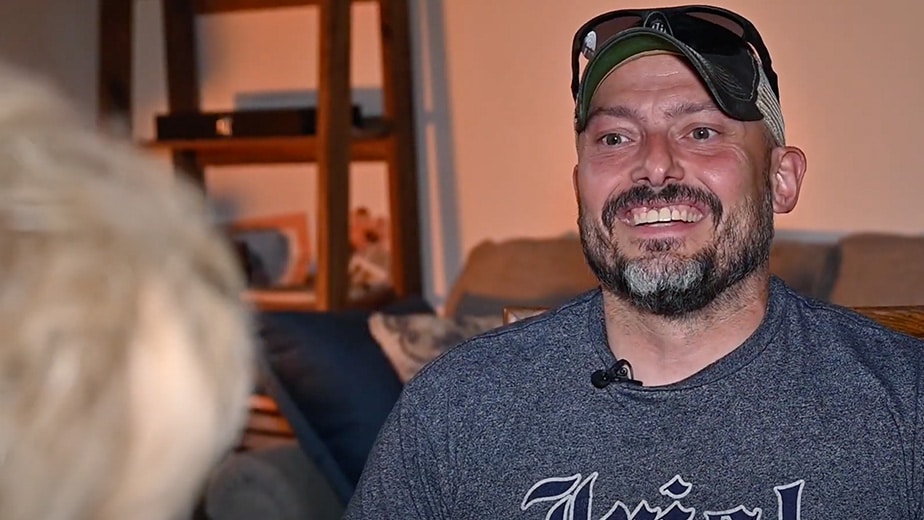
John Henson
Hodgkin's Lymphoma, Oct. 2019
John Henson lives on the edge of extreme danger. As an 18-year veteran of the Pittsburgh City Police force, he has spent 13 years as a narcotics detective and member of the exclusive SWAT team. This tight group responds to violent crimes and gang activity. They position themselves high above large events scouring for potential mass killings and were first on the scene at the devastating Tree of Life Synagogue massacre in 2019.
None of that was as terrifying to John as hearing the words 'You Have Cancer' in February 2020.
John was diagnosed with Diffuse large B-cell lymphoma (DLBCL), a fast-growing blood cancer and the most common form of non-Hodgkin lymphoma. He underwent multiple rounds of chemotherapy, changed his diet, and continued working out and living healthier.
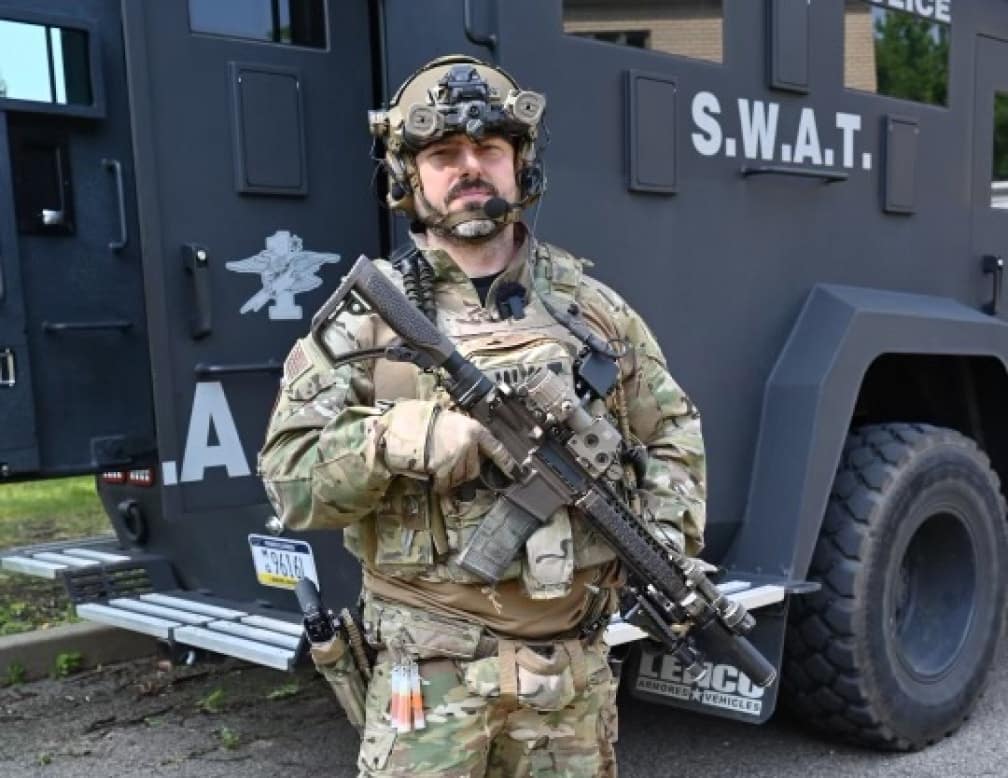
Less than a year later the cancer returned, and he was sent to UPMC Hillman Cancer Center to be treated by blood cancer expert, hematologist and oncologist, Dr. Kathleen Dorritie.
Dr. Dorritie recommended a clinical trial which evaluated the standard of care and a newer treatment. It compared stem cell transplant which uses healthy blood stem cells from the patient to replace bone marrow that's not working properly with CAR-T cell therapy where the patients T-cells are extracted and re-engineered to recognize their cancer and reinfused to kill the cancer cells.
UPMC Hillman Cancer Center is among the first in the nation to offer CAR-T therapy, beginning in 2018. To date, there are now eight CAR-T regiments offered.
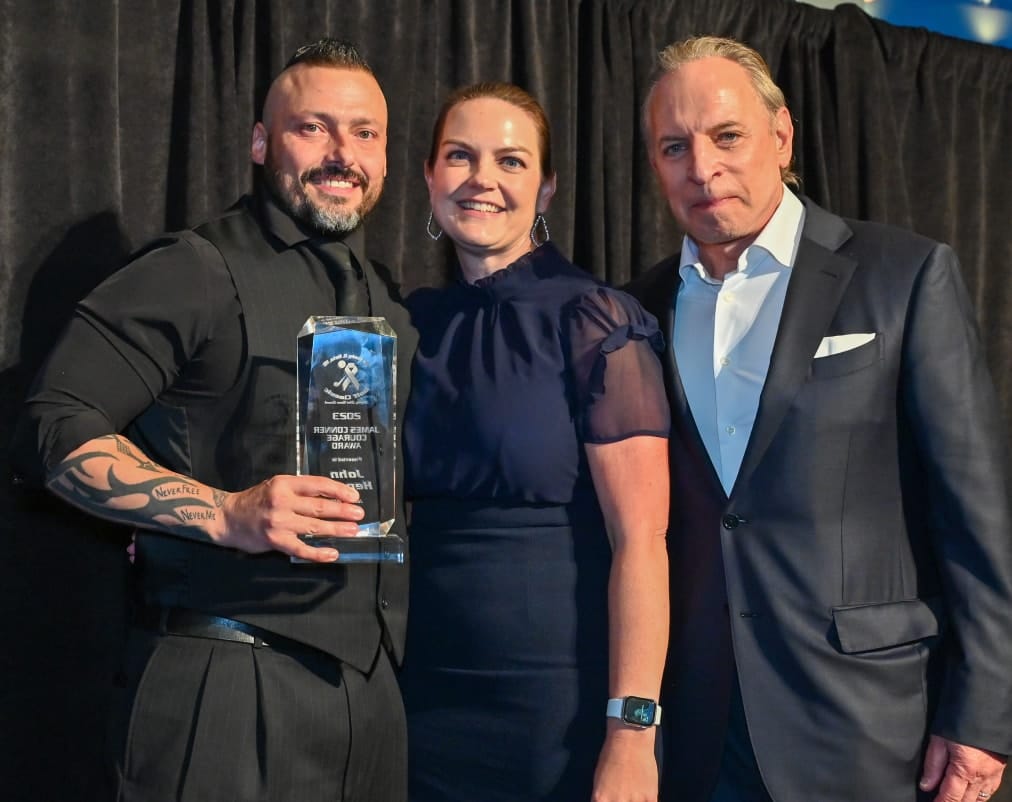
In this trial, patients are randomized. John received the stem cell transplant but - again - his cancer returned so he was immediately given the CAR T treatment. The treatment is grueling - requiring patients to undergo extensive chemotherapy to prepare their immune system for the new cells. Patients remain hospitalized for up to a month.
When John began his treatment, the COVID pandemic reached its worst peak and hospitals were forced to institute extreme safety measures. That meant restrictions to visitors with hours and days of isolation in the hospital. He was alone and he was afraid. At the foot of his hospital bed, where he could focus when his thoughts turned dark, was a quote from decorated U.S. Navy Seal and Lone Survivor, Marcus Luttrell.
"I can never forget, but no matter how much it hurts, how dark it gets or no matter how far you fall, you are never out of the fight."
John spiraled into a deep depression. He feared for his life, the potential of dying from cancer, leaving his family destitute and never being able to return to the job and his police brotherhood whom he loved. Eventually his wife and his team members convinced him to seek mental health care. His team rallied to financially support the family with a Go Fund Me, groceries, dinners, grass cutting but most importantly visiting often and listening. That and his return to his faith grounded him and began the steady recovery.
2022 James Conner Courage Award Recipient: Carrie Richards
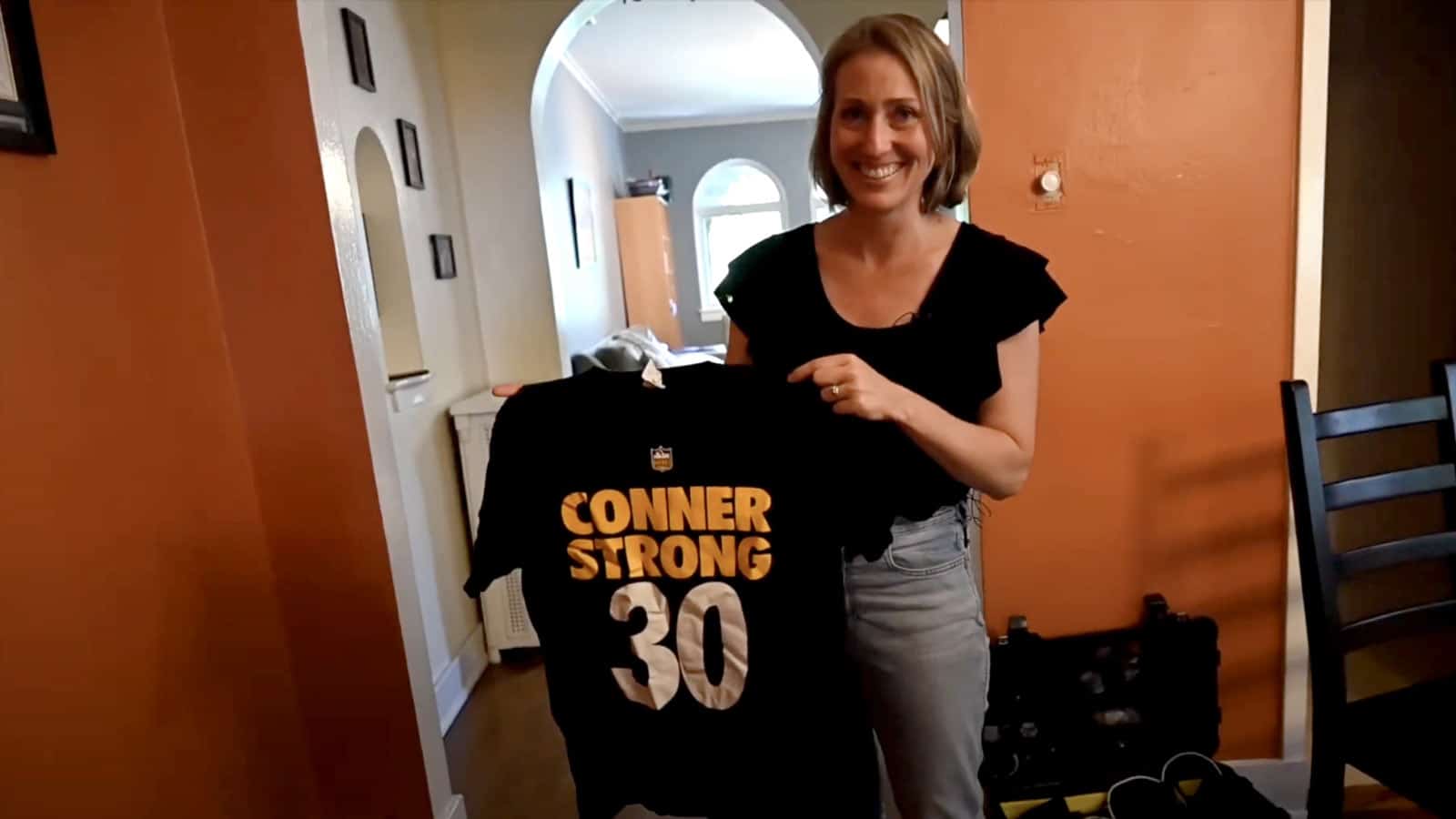
Carrie Richards
Hodgkin's Lymphoma, Oct. 2019
Carrie Richards spends her days working alongside Dr. Stan Marks at UPMC Hillman Cancer Center in the Mario Lemieux Center for Blood Cancer.
As a collaborative practice nurse, she is often the one who spends the most time talking to patients and guiding them through scheduling tests, learning results, getting answers to questions about symptoms and even insurance. She is a total resource for patients. However, in October 2019, her knowledge of blood cancer led to a self-diagnosis.
Carrie felt a lump at the base of her neck and a week later noticed additional changes in her neck. In a panic she called the one expert she could rely on and that was her boss, Dr. Stan Marks.
At only 36 years old and a mother of two small children, Carrie was diagnosed with Hodgkin's Lymphoma. She underwent six months of chemotherapy but did not miss a beat at home or at work. Carrie was adamant that she be the mother her young girls needed. Her husband, Ross, her parents, in-laws and many friends made sure Carrie was supported in every way so that she could have time to recover and be with her girls. She sought to maintain as much normalcy for her daughters by taking them to school every day, being present at bath and story time and being their mom.
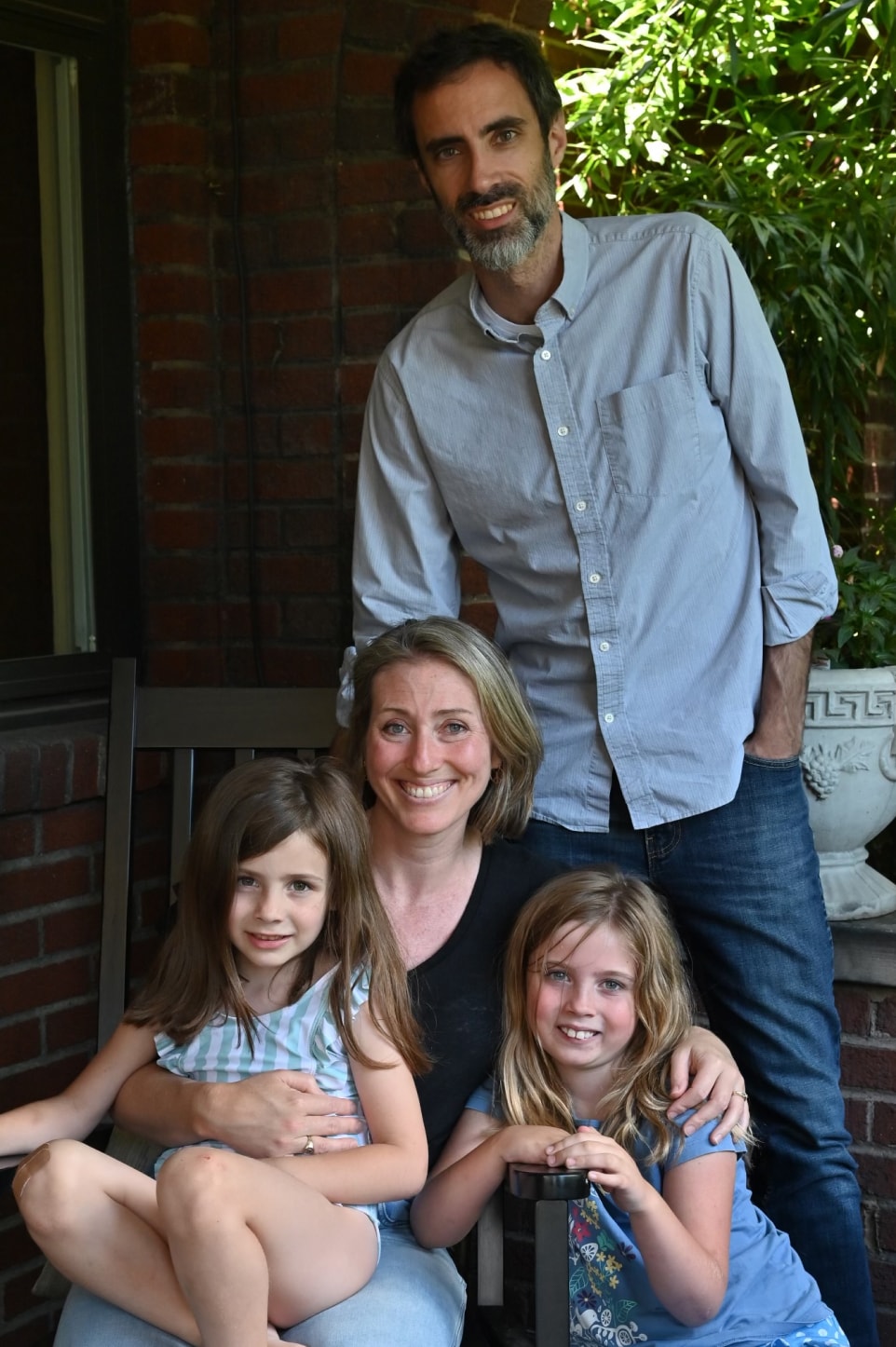
Interestingly, Carrie was part of the nursing staff who cared for James Conner when he was a patient of Dr. Marks at UPMC Hillman being treated for the same cancer - Hodgkin's Lymphoma. Carrie often thought of James, who never missed a Pitt Football workout and powered through his treatment to stay on the field, as she powered through her treatment to maintain her nursing duties at Hillman and mom duties at home.
Like James, Carrie is in remission. It is only fitting that Carrie Richards is the 2022 James Conner Courage Award winner!
2021 James Conner Courage Award Recipient: Cathy Doyle
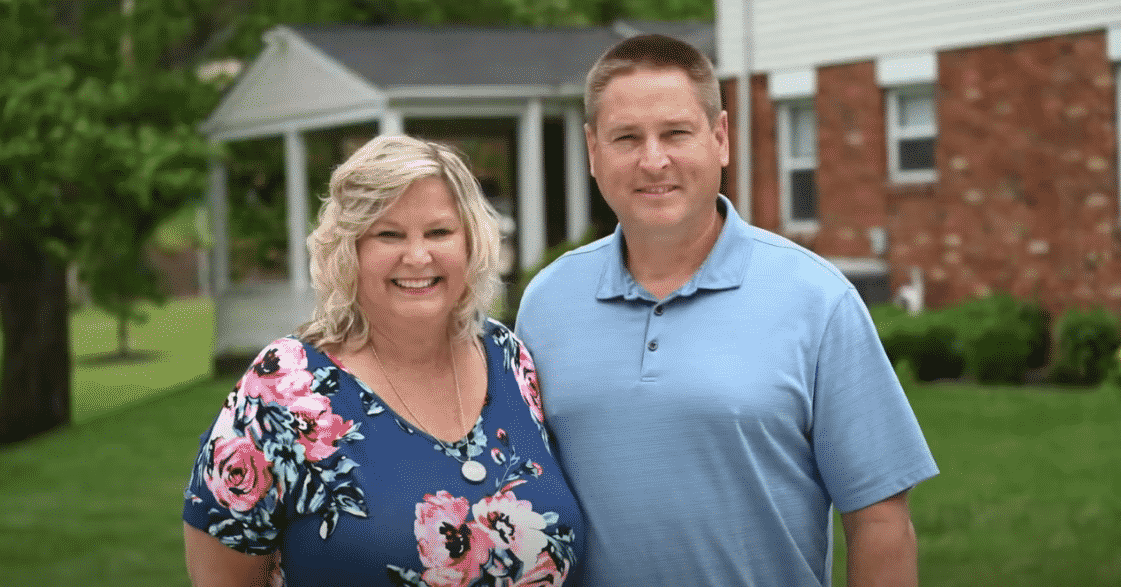
Cathy Doyle
Acute Myeloid Leukemia, 2016
First patient in UPMC Hillman-developed clinical trial
On any given day, you will find Cathy Doyle happily playing with and caring for her four grandchildren. Her entire family, which includes her two children, their spouses, her husband, and her nine brothers and sisters are extremely close, and most live nearby right in the Pittsburgh region.
That family rallied around Cathy when four years ago, she was fighting for her life following a diagnosis of Acute Myeloid Leukemia (AML), a rare type of blood cancer that forms in the bone marrow and rapidly progresses.
Unfortunately, Cathy was no stranger to cancer - she had already overcome ovarian cancer a few years earlier. With this diagnosis, her Hillman oncologist/hematologist, Dr. Annie Im, recommended she undergo an allogeneic stem team cell transplant, which requires a stem cell donor who is a close genetic match.
Patients sometimes struggle to find donors, but since Cathy came from a large family, she had choices. Every single one of her family members volunteered to be tested and the two brothers were 100% matches. It was her younger brother, Michael Ragan, who was a full match and became her donor. Ragan never hesitated. The transplant was not easy, but it worked.
Cathy spent a month at UPMC Shadyside receiving high doses of chemotherapy to kill the cancer cells and another month following a stem cell transplant, which replaces the destroyed stem cells in the bone marrow.
Despite the stem cell match, stem cell transplants can also have complications, one of which is called graft-versus-host disease or GVHD. GVHD occurs when the donor's T cells inadvertently attack the patient's healthy cells. It can be mild, moderate, or severe - and in some cases, life-threatening.
Preventing GVHD is a focus of UPMC Hillman Cancer Center researcher, Dr. Warren Shlomchik, and Cathy was the first person at UPMC selected for his clinical trial. The initial trial was so successful in reducing the risk of GVHD and in preventing cancer recurrence, that the trial has been expanded to a multicenter, national trial.
Cathy frequently calls herself blessed and lucky. She does not complain. She believes she was blessed to find Dr. Im and her oncology team, to be the first person in a new clinical trial at Hillman, and blessed for the wonderful nurses and a loving family who cared for her.
"She is one of a kind," Dr. Im said. "She never once said 'why me?' She approached every treatment with a positive, faithful, hopeful, and gracious spirit."
Today, Cathy helps other patients by talking with them about her clinical trial and her experiences. She keeps in contact with many of the nurses who cared for her and she is enjoying her life while running after those four grandchildren.
Cathy Doyle, the 2021 James Conner Courage Award recipient, is a positive, fun-loving, and caring woman who refuses to give in to cancer.
2019 James Conner Courage Award Recipient: Harrison Brown
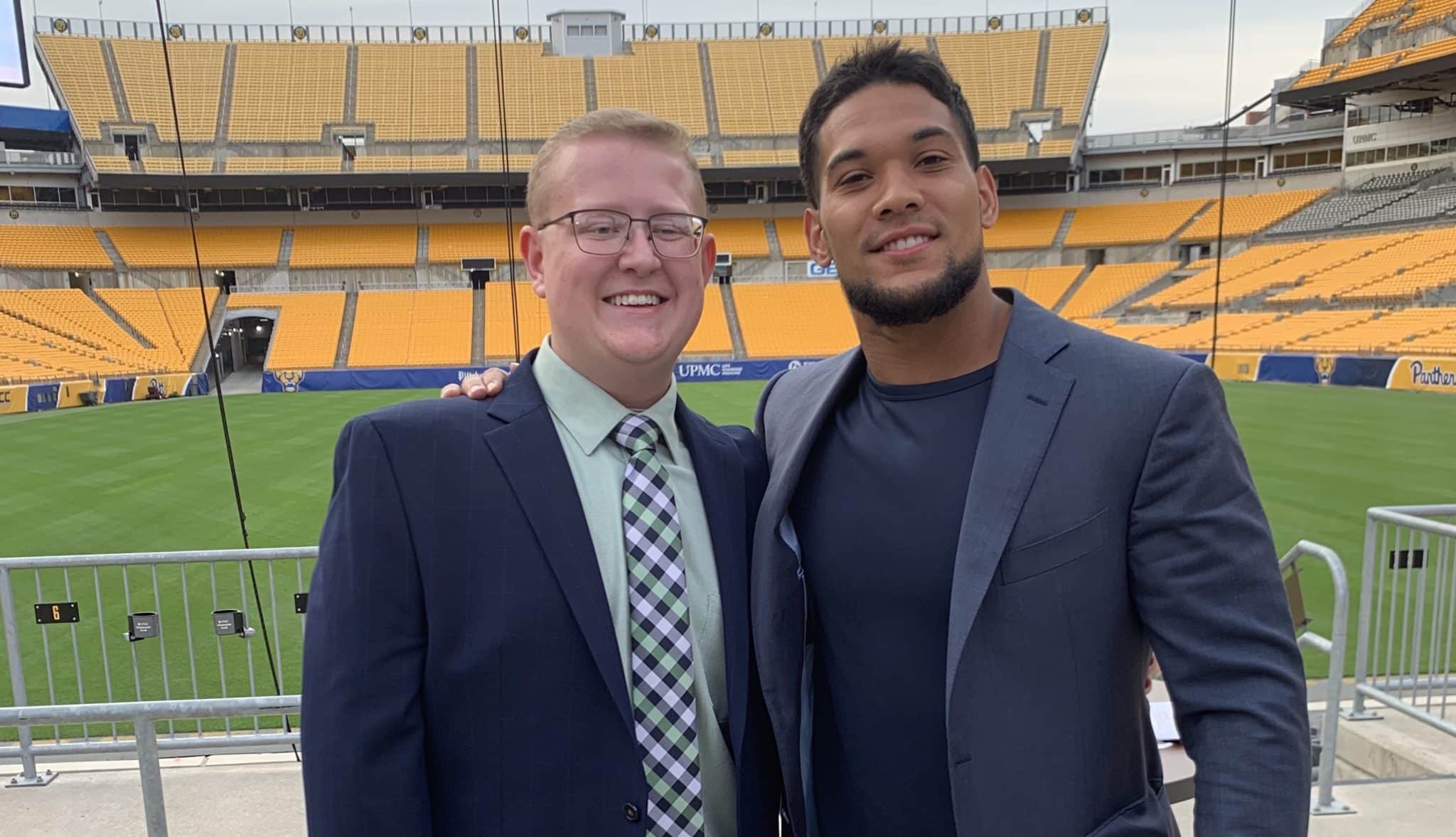
Harrison Brown
Hodgkin's Lymphoma, 2016
Autologous Stem Cell Transplant, 2017
Allogenic Stem Cell Transplant, 2018
In 2016, Harrison Brown was preparing for his Freshman season with the South Fayette Football Team. This southern Pittsburgh school district has had several championship seasons and Harrison was ready to start his high school football career as a defensive tackle and center for the Lions.
This year, 2019, Harrison will be a senior. It will mark the first time he will put on his school football uniform to join his teammates on the field.
The day Harrison was to board a bus for a team-building weekend in Ohio was the day he learned that what he thought was exercise-induced asthma was instead a tumor resting on his chest. Harrison was diagnosed with Hodgkin's Lymphoma.
Bob and Vicki Brown were stunned as they were told to take their son immediately to UPMC Children's Hospital. Their world would forever change at this very moment.
But, they say, Harrison courageously listened to the diagnosis and moved into tackling his new path just as he did athletically and academically.
Harrison missed 89 days of school of his freshman year as he underwent five, 21-day cycles of chemotherapy followed by radiation. His first day of school didn't happen until December of 2016.
Two months later, Harrison relapsed. This time he would need an autologous stem cell transplant, a treatment in which a patient's own blood cells are removed and then transplanted back after several rounds of chemotherapy.
Harrison's second relapse would happen just seven months after that transplant in February of 2018. Again, this young man set his sights on doing whatever was necessary to get through this next cancer diagnosis and treatment. This time it would be a stem cell transplant using donor cells. The allogeneic stem cell transplant, which was followed by full-body radiation, kept Harrison from starting yet another year of school on time.
Harrison spent more days in the hospital than in the classroom during his first three years of high school. But, every single day he studied, was tutored, and powered through his advanced placement and college-level courses amid hospital rooms, chemotherapy, and radiation treatments. What is most remarkable is he also maintained an incredible grade point average which today sits at 4.456.
In addition to his parents and family, Harrison had the full, unconditional support of the South Fayette Football team every step of the way. There were text messages, visits, and those few times Harrison and his dad would sneak out to his team's football game and watch, with a surgical mask on, from the far end of the field. And after winning the WPIAL District 4A Championship this past fall, the team ran towards the sideline of Heinz Field to share their victory and championship trophy with their teammate.
Harrison Brown, the 2019 James Conner Courage Award recipient, is a positive, intelligent, courageous young man who refuses to be defined by cancer.
2018 James Conner Courage Award Recipient: Jimmy Hernandez

Jimmy Hernandez Valencia
B cell Lymphoblastic Leukemia, 2013
Haploidentical Stem Cell Transplant, 2016
Jimmy Hernandez was first diagnosed with cancer following his high school graduation in 2013. At the urging of his girlfriend and her mother, Jimmy went to the emergency room and was immediately taken by ambulance to UPMC Shadyside Hospital. For two months, Jimmy underwent intensive chemotherapy treatment, while his family kept a constant vigil at his bedside.
Jimmy's leukemia returned in 2016 almost three years to the date of his initial diagnosis. This time, a stem cell transplant was needed to replace his unhealthy cancerous cells with healthy, blood-forming cells from a donor. The best results involve someone with a 100 percent match. But recent medical advances have shown that a 50 percent match or a haploidentical donor can be used. That donor is usually a parent or in some cases a sibling.
Jimmy's dad, Mel Hernandez, was that match.
Dr. Rafic Farah, a medical oncologist at UPMC Hillman Cancer Center, specializes in stem cell transplants. Jimmy became the first UPMC Hillman Cancer Center patient to undergo the High-Intensity Myeloablative Haploidentical Stem Cell Transplant. It was a success and Jimmy remains in remission!
Today, Jimmy is engaged to his longtime girlfriend, Alexandra Habers, and Jimmy now works for a UPMC pediatric practice as a multi-lingual patient services representative.
The nomination of Jimmy Hernandez Valencia for the 2018 James Conner Courage Award came from Dr. Rafic Farah who thought his continuous positive attitude, supportive family, and the strength he exhibited in his long fight with cancer made him the perfect recipient.
2017 James Conner Courage Award Recipient: Darran Dunlap
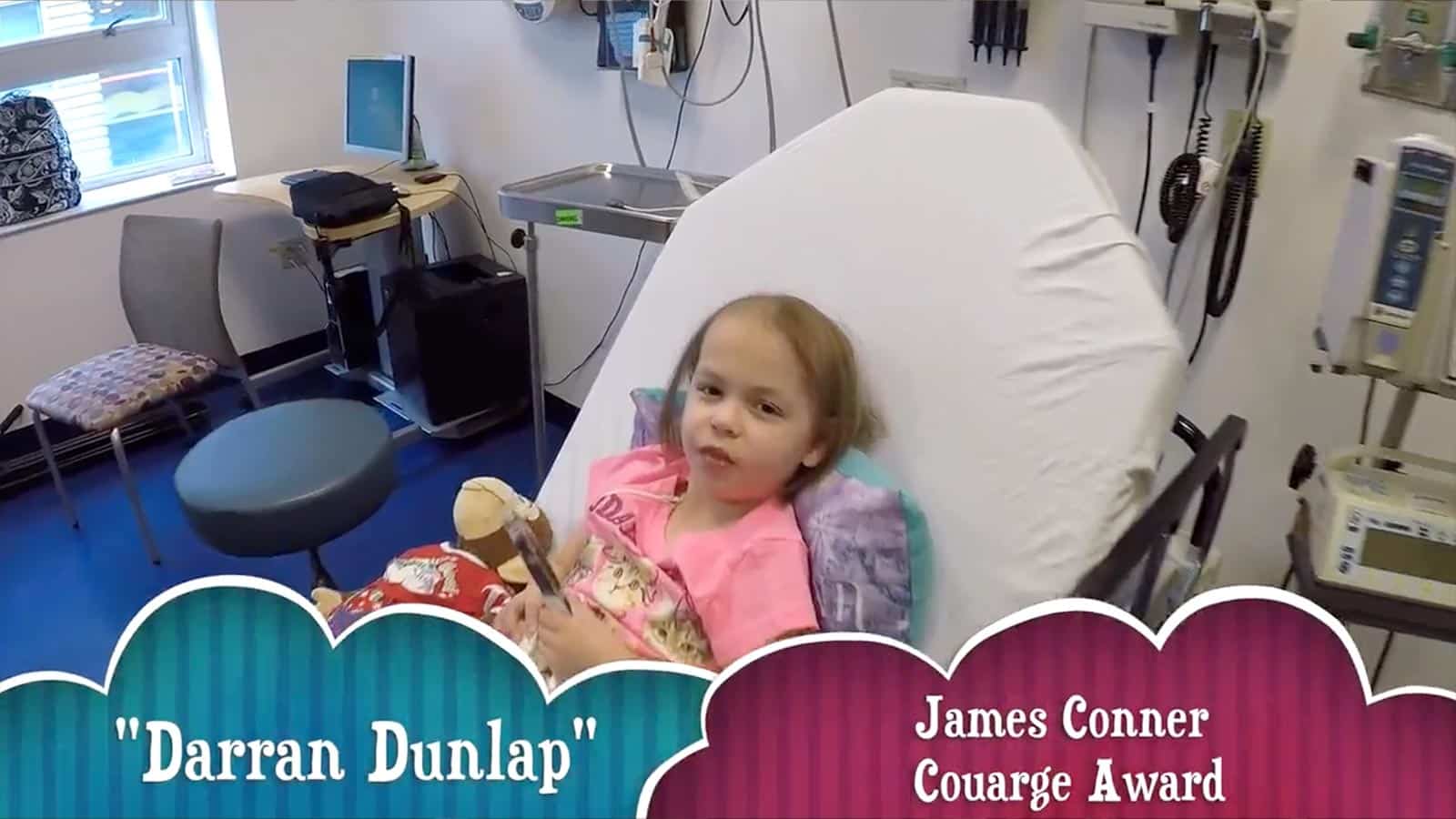
Darran Dunlap, Leukemia Survivor
Darran was diagnosed with Acute Lymphoblastic Leukemia (ALL) on November 7, 2016. She complained of leg pain a few days prior and after a night of uncontrolled leg pain, her family took her to the Emergency Department on November 6. She showed no other symptoms and was laughing, playing and acting like a normal five-year-old right up until her diagnosis. It was only a few hours later that her family received the initial diagnosis - Leukemia.
Darran was admitted to Children's Hospital of Pittsburgh that day and scheduled for tests in the morning to confirm the diagnosis. Since then life has been such a whirlwind.
That was all about a year and a half ago (will be current in May 2018) and it has been a steady stream of treatments, pills, hospital stays and clinic visits. But all the while Darran's family has remained positive - having stayed the course they hope to have her leukemia eradicated in March of 2018 with a final chemo treatment.
Darran is currently pushing through first grade with her twin brother, Declan and has missed very few days, sometimes getting tough treatment in the morning and then heading to school for the afternoon. Other times she fights through fatigue, nausea, and pain just to grit through the school day - all the while she hasn't fallen behind, which is a true testament to her toughness.
The day she was diagnosed, Darran's father called Dr. Stanley Marks for guidance and he still remembers what Dr. Marks told him. He said, "It isn't going to be easy. It's going to be a long, tough road, but she can get there. She can beat it but there won't always be good days."
They haven't. Some have been downright hell... but through all of it, Darran, her twin brother Declan, and parents Colin and Raina have remained confident that this will all make them stronger. And they have remained confident this cancer will be defeated in March. With the help of so many, this will be defeated.
